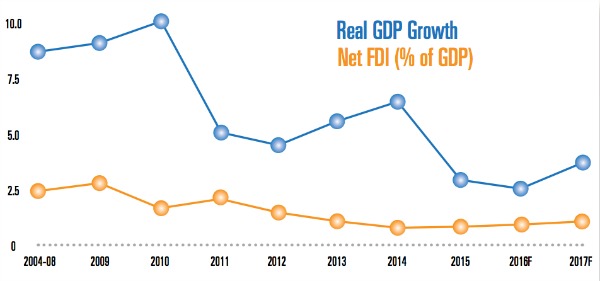Economic forecasts for Nigeria are now relatively subdued, following the boom years of high-priced oil exports. Still, Africa’s most populous nation remains rich in other resources, including a young urbanized population with a median age of 19, and a diversified economy. By 2025, Nigeria is expected to add 7.6 million middle-class households.
The country also faces numerous challenges, including escalating terror attacks concentrated in the northeast. The 2015 Global Terrorism Index places Nigeria in the #3 spot, behind Iraq and Afghanistan.
Residential Market
Nigeria’s housing deficit is estimated at 17 million units and is expected to increase by two million units/year. Even where housing is available, prices and mortgage financing can be major hurdles. The Nigerian government, in conjunction with the private sector and The World Bank, is working to improve mortgage access and funding rates.
Commercial Market
It’s difficult to understate the importance of retail development in Nigeria, where there is only one square meter of retail space per 1,000 people. In addition to smaller projects, 25 destination malls are in the pipeline. Office space is also in high demand. Several Grade A projects include the Wings development on Lago’s Victoria Island and the World Trade Center in Abuja. The Eko Atlantic project, built on 10 million square meters of reclaimed land, will house 250,000 residents, plus state-of the-art offices and retail space.
Infrastructure
Megaprojects include the Lagos-Calabar Railway (1,400 km coastal railway built by a state-owned Chinese company) and Lekki Deep Seaport (60 km east of Lagos and scheduled to begin operating in 2017).










